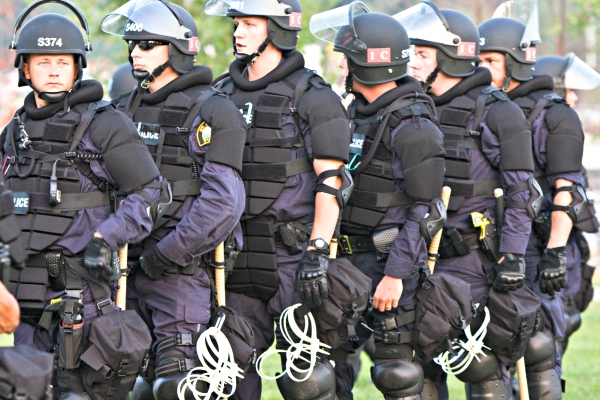
I opened my Facebook News Feed today to find a moving video of cops—cops doing the right thing, cops doing the man thing and the woman thing and the hero thing.
Cops being pictured doing what we all hope and pray and dream of them doing.
There is no question that the video is a compilation of police officers behaving in exemplary ways and offering what society needs—peace officers to maintain law and order.
In fact, this video depicts the picture that I have carried in my mind most of my life when I have thought of cops. I am glad for the people in uniform in this video and I am grateful to them for what they do.
I am also concerned about what else is going on in addition to what the video depicts.
Today I am concerned about all those other videos, the ones captured on cell phones in the field of police officers doing the opposite of what the Facebook video depicts.
Today, I am concerned about the institution of policing in the United States as a whole, and about its dysfunction and about the fact that all individual members of a dysfunctional system take part in the dysfunction of the system.
Including the police in the video.
The title of this video is Stopthecophaters, but to call those who point out the dysfunction in a system “cop haters” is wrong-minded and does nothing to improve the system.
It especially does nothing to eliminate those cops who are causing harm to others and, in fact, allows them to continue to be a part of the system.
It is the system that is sick and it is the system that needs to be changed.
Public relations/feel good/emotionally based videos that point out only that individuals within the system do good, do nothing to heal the cancer in the system. In fact, they drive the cancer deeper by ignoring it.
When I call out the dysfunction in a system and say:
“Look at the way police escalate situations rather than de-escalate them.”
“Look at how poorly police adhere to their own rules.”
“Look at how they cover up for each other.”
“Look at how they are over-militarized, over-armed, and over-protective of each other at the expense of those they are supposed to be protecting”…
…it does not mean I am a “cop hater.”
It means that I am pointing to a system that allows the existence of brutality, racism, and naked rage.
It means that I am pointing to the fact that every police officer—the good, the bad, and the ugly—must assume responsibility for his or her personal, codependent role in the dysfunction of the system as a whole.
It means that I am also questioning how that is going to come about without someone outside the system, or society in general, demanding it.
The bottom line is if we, as a society, do not want bad cops we need to participate in changing the system —not just show videos of good cops as if that is making a difference when it is not.
“We look at the end interaction, examining the officers for bias and the suspect for threatening behavior, rather than looking at the systems that necessitated the interactions. Society itself is to blame. There is blood on everyone’s hands…”
“There is blood on everyone’s hands.”
That blood cannot be washed off by showing feel-good pictures of cops.
It can only be hardened.
~
Relephant Read:
Online Tool for Police-Related Fatalities Could be the Most Powerful Weapon Yet.
~
Author: Carmelene Siani
Editor: Ashleigh Hitchcock
Photo: Wikimedia Commons






Read 1 comment and reply